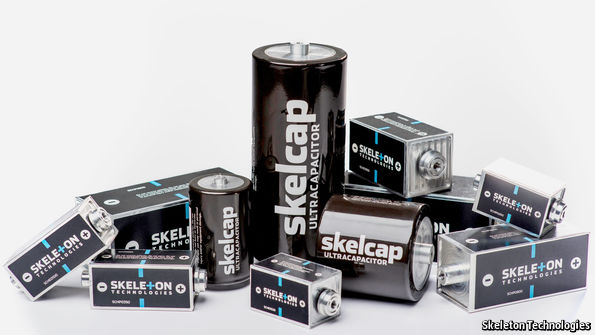Manufacturing ultracapacitors

ALMOST every week seems to bring reports in scientific journals of new electricity-storage devices—batteries and capacitors—being invented in laboratories around the world. The journey from bench-top to assembly line, though, is fraught with hazard and few of these ideas end up as products able to withstand the rough and tumble of industrial and consumer use. Fewer still hail from beyond the laboratories of North America, western Europe and Japan. But one which does is Skeleton Technologies’ ultracapacitor, which was developed, and is now being manufactured, in Estonia.
Unlike batteries, which store energy chemically by squirrelling it away in the materials of their electrodes, capacitors store it physically as static electricity clinging to the surfaces of their equivalents of electrodes, which are known as plates. This static can be tapped or added to more swiftly than any chemical reaction can manage, so capacitors both store and discharge electricity more rapidly than batteries do. That makes them ideal for delivering short bursts of power. But they cannot accommodate nearly as much energy as batteries, so they soon run out of…Continue reading
Source: Economist




